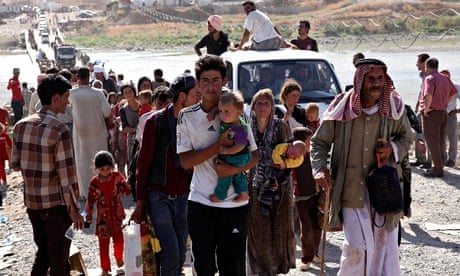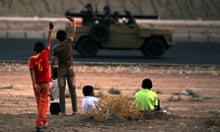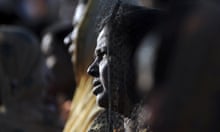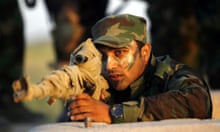The Vatican has called on Muslim leaders to denounce unambiguously the persecution of Christians and Yazidis in Iraq – and hinted that it is considering breaking off dialogue with Islamic representatives if they fail to do so.
In a statement on Tuesday, the department in charge of inter-religious dialogue said: "The dramatic situation of the Christians, the Yazidis, and other minority religious and ethnic communities in Iraq demands that religious leaders, and above all Muslim religious leaders, people engaged in inter-religious dialogue and all people of good will take a clear and courageous stance. All must be unanimous in their unambiguous condemnation of these crimes and denounce the invoking of religion to justify them."
In a departure from its customary language in the highly sensitive area of inter-faith relations, the Vatican statement asked: "Otherwise, what credibility will religions, their followers and their leaders, have? What credibility could the inter-religious dialogue [which has been] patiently pursued in recent years have?"
The statement highlighted the fact that the campaign being waged against religious minorities by the Islamic State (Isis) threatens to provoke the biggest crisis in Catholic-Muslim relations since 2006 when the then Pope Benedict gave a controversial lecture in Germany in which he quoted a comment critical of Islam.
Up to 100,000 Christians are reported to have fled their homes in Iraq because of the threat posed by Isis.
The Vatican's Pontifical Council for Inter-religious Dialogue said Isis had committed "and was continuing to commit unspeakable criminal acts". To reinforce the point, it listed some of the atrocities for which Isis is reported to have been responsible. They included "the massacre of people solely for reasons of their religious adherence"; "the execrable practice[s] of decapitation, crucifixion and hanging of corpses in public places"; "the choice imposed on Christians and Yazidis between conversion to Islam, payment of a tax (jizya) and exodus"; "the forced expulsion of tens of thousands of people, including children, old people, pregnant women and the sick"; "the abduction of women and girls belonging to the Yazidi and Christian communities as war booty (sabaya)", and "the imposition of the barbaric practice of infibulation".
The statement, issued in French, appeared to be the work of Cardinal Jean-Louis Tauran, the president of the pontifical council and an experienced diplomat who represented the Vatican in Beirut and Damascus. In 2008, he stirred controversy when he accused the then Archbishop of Canterbury, Rowan Williams, of being "mistaken and naive" for saying that some aspects of sharia law in Britain were unavoidable.
Pope Francis gave an early indication of the Vatican's hardening attitude on Sunday when he said the news from Iraq had left him "in dismay and disbelief".
Last Friday, the pope named Cardinal Fernando Filoni as his personal envoy to the region. The cardinal was due to fly out on Tuesday after his departure was postponed on Monday, apparently because of security fears.










